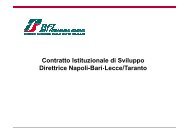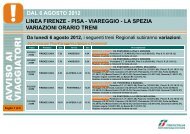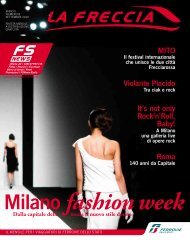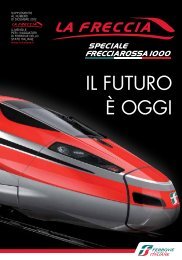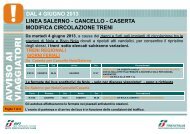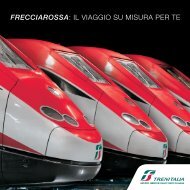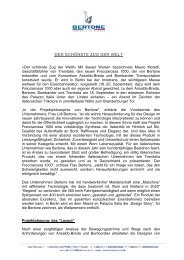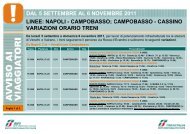You also want an ePaper? Increase the reach of your titles
YUMPU automatically turns print PDFs into web optimized ePapers that Google loves.
WHAT WILL WE EAT TOMORROW? WESTERN,<br />
INDUSTRIALISED CULTURE HAS LONG RECOGNISED that Africa<br />
and some parts of the Third World are areas of chronic hunger and food shortages. For<br />
decades now food opulence and the continual availability of goods on supermarket shelves<br />
has kept our consciences at ease regarding possible food scarcities at home and the health<br />
of our food chain, all of course supported by the main industries in this sector. However,<br />
a growing number of infl uential scientists, intellectuals and scholars, have been questioning this<br />
mechanism, asking themselves what kind of food we will be eating in the future. The literature<br />
is vast and is supported by the works of documentary fi lm makers and directors. Of particular<br />
interest are: «The End Of Food» by Paul Roberts, «In Defence Of Food» by Michael Pollan.<br />
ziati, studiosi e intellettuali che mettono in discussione<br />
questa grande macchina, interrogandosi<br />
su quale sarà il cibo che mangeremo. La<br />
letteratura è vasta, affiancata dalle opere di documentaristi<br />
e registi. Di Paul Roberts, giornali-<br />
Giugno 2009<br />
sta scientifico free lance americano, è da poco<br />
uscito La fine del cibo (Codice edizioni), inchiesta<br />
sulle leggi che reggono il meccanismo di produzione,<br />
distribuzione e vendita degli alimenti,<br />
mettendone a nudo le contraddizioni: i super-<br />
67<br />
© iStock Photos



